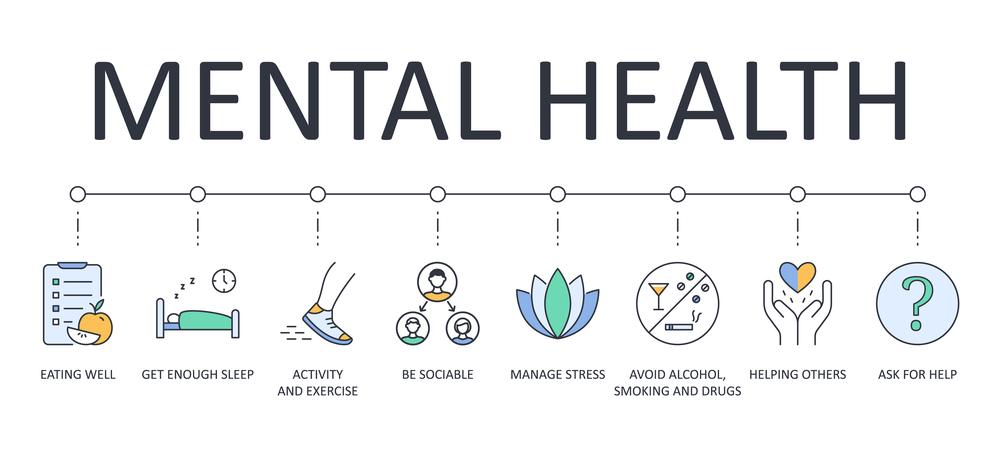As a BetterHelp affiliate, we receive compensation from BetterHelp if you purchase products or services through the links provided
In the intricate dance of life, many find themselves entangled in the clutches of addiction. This all-encompassing force affects the individual and reverberates through their relationships and well-being. Overcoming addiction is a journey laden with challenges, and when coupled with the inevitable stressors of daily life, it becomes a Herculean task. This comprehensive guide aims to shed light on navigating the arduous path of breaking free from addiction while concurrently managing stress. Each step is a nuanced exploration, offering practical insights and emotional support to those seeking a healthier, more balanced life.
Understanding the Depths of Addiction with Experts’ Help

To embark on the journey of overcoming addiction, one must first delve into the intricate web of its roots. Addiction, whether to substances or behaviors, often serves as a coping mechanism for underlying issues. Identifying these root causes becomes a pivotal step in the recovery process. It’s crucial to acknowledge that addiction specialists play a significant role in this phase. Seeking their expertise can unravel the layers of complexity, providing personalized insights into the specific triggers and patterns that fuel the addiction cycle. Also, consider rehab centers to get expert help and support.
Building a Support System
No journey toward recovery is undertaken in isolation. Establishing a robust support system is paramount in the battle against addiction and stress. Family, friends, and support groups can offer understanding, empathy, and encouragement. Open communication and vulnerability create an environment conducive to healing. Regular interactions with addiction specialists can further fortify this support network, offering professional guidance that complements the emotional support from loved ones.
Implementing Holistic Lifestyle Changes

Implementing holistic lifestyle changes is a pivotal facet of the journey to overcome addiction and manage stress effectively. This transformative process goes beyond the cessation of addictive behaviors, emphasizing a comprehensive shift towards healthier habits that nurture the mind, body, and spirit. Engaging in regular physical exercise not only promotes physical well-being but also releases endorphins, aiding in mood stabilization and stress reduction. Balanced nutrition becomes a cornerstone, providing the body with the essential nutrients for optimal functioning. Additionally, incorporating mindfulness practices, such as meditation and deep breathing exercises, fosters a heightened awareness of the present moment, alleviating stress and promoting mental clarity. Addiction specialists often advocate for these holistic lifestyle changes as they contribute significantly to creating a sustainable foundation for long-term recovery, reinforcing the individual’s resilience against the challenges that may arise on the path to healing.
Navigating the Emotional Rollercoaster
The journey of overcoming addiction is rife with emotional turbulence. It involves confronting not only the external consequences but also the internal conflicts that led to the addictive behaviors. Stress, anxiety, and even depression can intensify during this period. Addiction specialists play a crucial role in helping individuals navigate this emotional rollercoaster. Their expertise enables personalized strategies to cope with emotional challenges, fostering emotional resilience as an integral component of recovery.
Developing Coping Mechanisms

Developing coping mechanisms is akin to forging a resilient armor that shields individuals from the impact of life’s stressors while on the path to recovery. It involves deliberately cultivating strategies and tools that empower individuals to navigate challenges without resorting to addictive behaviors. Addiction specialists play a pivotal role in this process, offering personalized guidance to tailor coping mechanisms to an individual’s unique circumstances. Whether through mindfulness practices that promote present-moment awareness, cognitive-behavioral strategies that reframe negative thought patterns, or other therapeutic approaches, these coping mechanisms serve as powerful allies in adversity. By honing these skills, individuals manage stress more effectively and build a foundation for sustainable recovery, fostering emotional resilience that withstands the ebb and flow of life’s complexities.
Maintaining Long-Term Sobriety
The culmination of the recovery journey lies in the ability to maintain long-term sobriety and resilience against stressors. Consistent follow-ups with addiction specialists are essential during this phase. These professionals offer ongoing support, helping individuals navigate the challenges in post-recovery life. Implementing relapse prevention strategies, refining coping mechanisms, and addressing emerging issues are integral to the long-term sobriety maintenance plan.
Overcoming addiction and dealing with stress is a multifaceted journey that demands introspection, support, and commitment. With their specialized knowledge and experience, addiction specialists serve as guiding lights throughout this process. By understanding the depths of addiction, building a robust support system, implementing holistic lifestyle changes, navigating the emotional rollercoaster, developing coping mechanisms, and maintaining long-term sobriety, individuals can embark on a transformative path toward a healthier and more fulfilling life. The key lies not only in breaking free from addiction but also in forging a resilient spirit capable of facing life’s challenges with grace and strength.
- 7 Ideas to Help You Relax and Unwind on a Family Vacation - April 27, 2025
- How Having Cybersecurity Protection Helps You Relax - April 25, 2025
- 8 Reasons Why Spending Time Outside Calms You Down - April 25, 2025
This site contains affiliate links to products. We will receive a commission for purchases made through these links.



